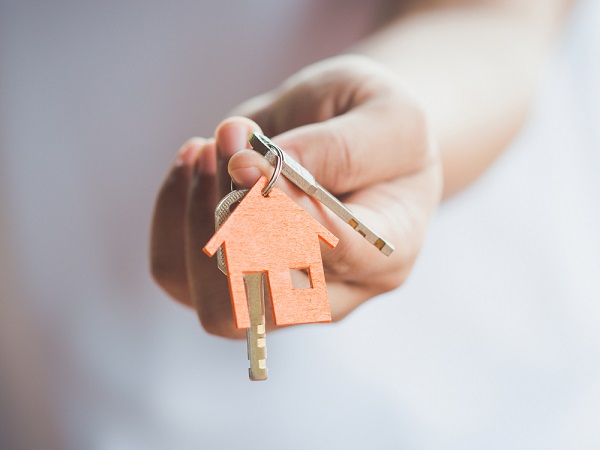Homeownership 101 – Things to consider when buying a house

Many people dream of buying a house for years, if not decades, before beginning the process. You may have thought about how many rooms you want, what your neighborhood should look like, and what grass gnome you will have in your front yard.
However, buying a house is not just about choosing your favorite property and moving.
It is important to understand all the steps necessary to buy a house, as well as what to look for when buying and how to close it.
But you don’t want to make hasty decisions when buying a home, especially your first one. So, let’s walk through the process with you to help you enter your dream home, in a responsible way.
Table of Contents
Know your credit score

Your credit score is one of the main factors in determining the terms of your loan. Know your score before trying to get a loan and take the time to fix it if it is below 700.
A good credit rating that leads to a low-interest rate can save you tens of thousands of dollars over the life of the loan. Find out how to increase your credit score for better loan terms.
One of the most important things to know before buying a home is your credit score.
Get pre-approved by a lender before you buy

What to do before buying a home includes mortgage pre-approval. In fact, it is one of the most crucial steps in the home buying process!
Pre-approval means that you should be able to get the loan as long as nothing changes in your financial situation or credit score.
A pre-approval letter is also helpful when you want to compete with another buyer for a home you love. One of the first things most sellers will ask their agents when they receive an offer is how qualified the buyer is to buy.
Sellers want to feel comfortable knowing that the buyer will not be denied the loan. A home buyer needs to understand that there is a difference between pre-approval for a mortgage and pre-qualification. To get pre-approved, lenders will verify employment, income, and credit. This is not usually the case for a prequalification.
Find a lender before you get a mortgage

While getting pre-approved for a mortgage is an important step for a first-time buyer, it is possible to shop around for the best deal. You’ll likely pay off the mortgage for a while, so getting the lowest mortgage rate should be one of your top considerations.
Be sure to look at the annual percentage rate you pay (commonly known as APR), so you can compare apples to apples. With some loans, you can pay more points or have higher closing costs than others. So when looking for the best possible mortgage, look not just at the rate, but at the entirety.
Know all costs before buying a house

In addition to mortgages, there are many costs associated with buying a house. Insurance, maintenance, association fees, property taxes-if they are related to your purchase, you need income and budget to handle all of these things.
Real estate agents have been talking about the additional costs to consider when buying a house. You should also have some savings to deal with emergency situations in your house.
Before buying a house, you should be satisfied with all related expenses, not just a mortgage.
Know what you want

Do you want a house or a condo? For many first-time buyers, this is one of the first dilemmas they will try to solve. In fact, many buyers will consider both options if they can’t make up their minds.
To make good decisions, you need to know the pros and cons of a condo versus a house. More and more buyers will be disappointed when choosing a condo because they don’t understand the ramifications of its restriction or how quickly rates can change. Of course, the appeal is usually for buyers who don’t have time for home maintenance.
After the excitement of buying the house wears off, you will have to live there for years to come. Make sure you buy a home that meets your needs and your lifestyle. More space is not always better. Lawns require maintenance. Being around the things you love can end up being more important than you think.
Understand that you are not only buying a house, but also a site. One of the main considerations that many buyers overlook when buying a home is how to choose an area that they will like. Oftentimes, first-time buyers focus too much on the house and not enough on the neighborhood.
Work with a Qualified Real Estate Agent Who Knows Your Area

Each neighborhood has its unique qualities that you should know before buying. An agent with knowledge of the area will also know the value of the houses, so you will not have to pay too much for a property.
Be sure to interview several real estate agents for buyers. Pick someone who works full time in the business every day and has a recent history of successful sales.
The better the real estate agent knows the area, the better prepared he will be to understand the differences in market value from one property to another.
Don’t fixate on the purchase price

The purchase price is only one part of owning a home; be sure to consider all the costs associated with your potential new home. This includes the cost of insurance, homeowners association fees, and property taxes; Depending on where you live, these can add up quickly. And it’s not just home improvements that can cost money – maintenance costs money, too.
It is a good idea to ask about the maintenance of extras like swimming pools, sophisticated heating and air conditioning systems, and outbuildings.
Understand the real value of any property you buy

Working with a real estate agent who understands market values in your area is essential if you want to avoid paying too much for your home.
In addition to the actual purchase price, there are other fees like appraisals and inspections that can cost you more if you don’t understand the value of the home.
Sellers and banks may also not be flexible if you ask them to adjust the price later.
Make sure all renovations are compliant with your needs

If a renovation was done without a permit, it may not have been done right. No permit means that the work has not been inspected by an inspector, which you do not want in your new home.
You may be wondering why a salesperson would bother not to get a work permit from your home. There are generally three reasons for this:
By obtaining a permit for an addition, you will pay more taxes as your appraised value will increase with a larger home.
It costs money to get permits. When you install an addition, you generally pay for the electrical, plumbing, and building inspector general permits. Many homeowners just don’t want to bother paying fees.
Pure laziness. It’s such a sad excuse, but it’s what happens to some people who don’t want to take time out of their day to get work permits.
Know your furniture plan

If you have furniture that you love, you will want to bring it with you. Make sure your new home can accommodate you. Or, if you plan to buy new furniture, you will want to buy a home at a price that leaves you enough money to furnish it.
Do not do anything that could affect your financial situation

Your pre-approval depends on the information provided at the time of your request.
Any change, such as looking for another job or taking out a car loan, can result in the loan application being rejected when buying a home.
While I enjoy educating all of my buyers on important purchases when buying a home, many do not.
It is not wise to make a major purchase when buying a home. This is one of the main reasons buyers can be denied a mortgage after it has been pre-approved. It is not a pleasant experience!
Know the growth potential of your investment

Buying a building to renovate in an increasingly popular neighborhood offers the possibility of increasing the value of your home. On the other hand, buying the most beautiful house in the area may not have many advantages.
Consult your real estate agent and ask for their opinion on the profit prospects if the general area continues to appreciate. Will the housing lag behind the market or will it be a mainstay? If ROI is needed, surely this is something you should find out.
Final Words
As you can see, there are a ton of things to get familiar with before buying a home. Do your homework carefully. Due diligence is essential, especially when buying your first home. I hope you find these things helpful when buying a home.






Leave a Reply